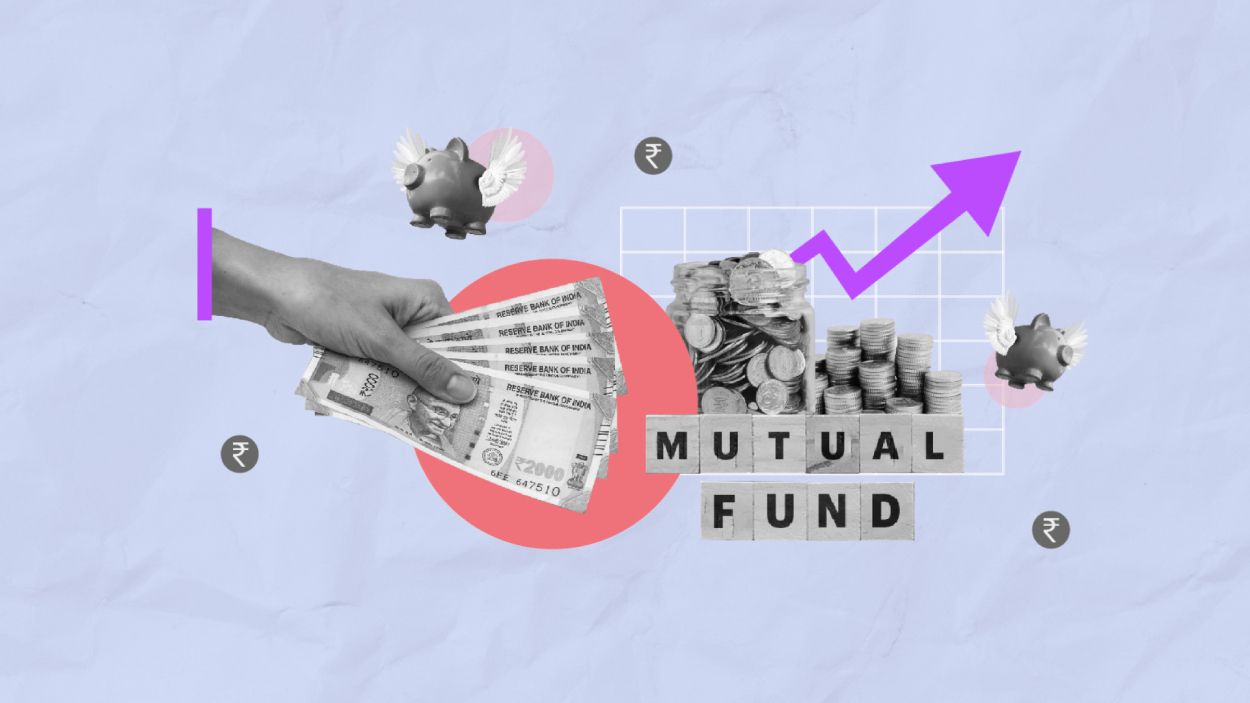A large number of people believe that all Mutual Funds are the same. There are several types of funds, the most common of which are equity funds and debt funds. While debt funds primarily invest in fixed income securities, equity funds primarily invest in equity shares and related securities. Both equity and fixed income securities have unique characteristics that influence how the respective schemes perform.
What are Equity Funds?
Equity funds invest primarily in company stock and related securities such as derivatives (i.e. futures and options) that trade on the stock exchange. The primary goal of stock investing is capital appreciation, but stocks may also pay dividends, which provide income to investors. When comparing the differences between equity and debt mutual funds, equity is the more volatile asset class. For equity fund investments, investors must have moderately high to high-risk appetites and longer investment tenures.
Equity funds are classified into three types based on their market capitalization, namely large cap, mid cap, and small cap. Large cap funds primarily invest in the top 100 companies by market capitalization. Mid cap funds primarily invest in companies ranked 101st to 250th by market capitalization, while Small Cap funds primarily invest in companies ranked 251st and higher.
The Factors To Consider Before Investing in Equity Mutual Funds
In order to invest successfully in equity mutual funds, you should take a few factors into consideration.
1) Size Of The Fund
The fund’s size is important because it reflects how much money you can invest in it. If you want to invest a large sum of money, you should think about the fund’s size. A small fund may not be able to provide you with adequate returns on your investment, resulting in poor long-term returns.
2) Expense Ratio
Expense ratios are another important consideration when investing in equity mutual funds.
The greater the expense ratio, the greater the fees paid per unit of value invested. This means you’ll have to spend more money on fees, making it difficult for investors to make profits year after year because they’ll have to pay more fees than they’ll get back in return.
3) Risk Reward Ratio
This factor should also be considered when investing in equity mutual funds because their risk-reward ratio determines how well they perform over time in comparison to other investments that provide comparable returns with less risk.
A high risk-reward ratio indicates that an investment has a high risk of losing money while providing little or no returns over time, leading investors to believe that there is no point in investing at all.
What are Debt funds?
A debt fund invests primarily in debt and money market instruments. Commercial papers (CPs), certificates of deposit (CDs), Treasury bills (T-Bills), and other money market instruments are examples. Non convertible debentures (NCDs), Government Bonds or G-Secs, and other debt market instruments are examples of debt market instruments. The primary goal of investing in debt or money market instruments is to earn interest payments. Though income is the primary investment goal of debt funds, some debt funds that take interest rate calls can also provide investors with capital appreciation. The primary distinction between debt and equity funds is that debt funds carry significantly lower risks than equity funds.
Another significant distinction between debt mutual funds and equity mutual funds is that debt funds come in a variety of forms that allow you to invest from one day to many years. Overnight funds, for example, invest in instruments that mature overnight and have virtually no interest rate risk. Liquid funds invest in securities that have a maturity date of less than 91 days. Interest rate risk is low to moderately low in ultra short and low duration funds with durations ranging from 3 to 12 months. Short duration funds have moderate interest rate sensitivity, while medium to long duration, long duration, and Gilt funds with durations of 4 to 7 years or longer have high interest rate sensitivity.
The Factors You Should Consider Before Investing in Debt Mutual Funds
When investing in Debt Mutual Funds, keep the following factors in mind:
1) Expense ratio
A mutual fund’s expense ratio is the total amount of fees paid. This can include management fees as well as any additional expenses such as operating costs and transaction fees.
2) Management Fee
The fund manager charges a management fee, which is a percentage of your investment that must be paid every year. If you choose to invest in a fund with an annual management fee, you will pay more than if you do not, but it is worthwhile if you can find one that charges more while still providing good returns on your money.
3) Risk appetite
An investor’s risk appetite is determined by how much risk they are willing to take in order to make more money. In general, the greater the risk, the greater the potential return. If you have a high risk tolerance, you should invest in funds that have higher-than-average rates of return or low expense ratios rather than those that have lower rates of return or high fees.
| Equity Funds | Debt Funds | |
|---|---|---|
| Investment focus | Equity funds primarily invest in publicly traded stocks. They may also put their money into equity-related instruments like derivatives. | Debt funds are funds that invest in debt and money market instruments. These seek to generate consistent income from interest on such investments. |
| Returns | Long-term returns from equity funds are generally higher than those from debt funds. | When compared to equity funds, debt fund returns are typically low or moderate. |
| Risk | The fund is suitable for investors with a moderate to high level of risk tolerance. | It is suitable for investors with a low tolerance for risk. |
| Expense ratio | Actively managed equity funds have higher expense ratios than passively managed equity funds. | Debt funds may have lower expense ratios than equity funds. |
| Investment horizon | Because equity funds are subject to market volatility, they provide higher long-term returns than short-term returns. | Interest rates may fluctuate, and to maximize returns, investors must select specific debt funds based on ongoing interest rates. |
| Taxation | Short-term capital gains from equity funds are subject to a 15% tax. Long-term capital gains are tax-free up to Rs 1 lakh, after which they are taxable at 10%. | On debt fund investments, short-term capital gains tax at the individual income tax rate must be paid. Investors can benefit from indexation when investing in debt funds over the long term. Long-term capital gains are taxed at 20% after indexation benefits. |
Conclusion
Debt funds outperform other types of funds in terms of average returns and provide a guaranteed return. They are relatively low risk, making them ideal for investors seeking consistent income even if their capital suffers a setback.
Equity mutual funds, on the other hand, have provided higher returns over the years and have a greater potential for providing better returns than debt funds, but this depends on whether you invest in front-loaded debt funds or not.
However, before comparing debt vs equity funds or investing in any fund, you should consider your risk tolerance, investment horizon, and age, as equity funds are not suitable for everyone due to their high risk.




